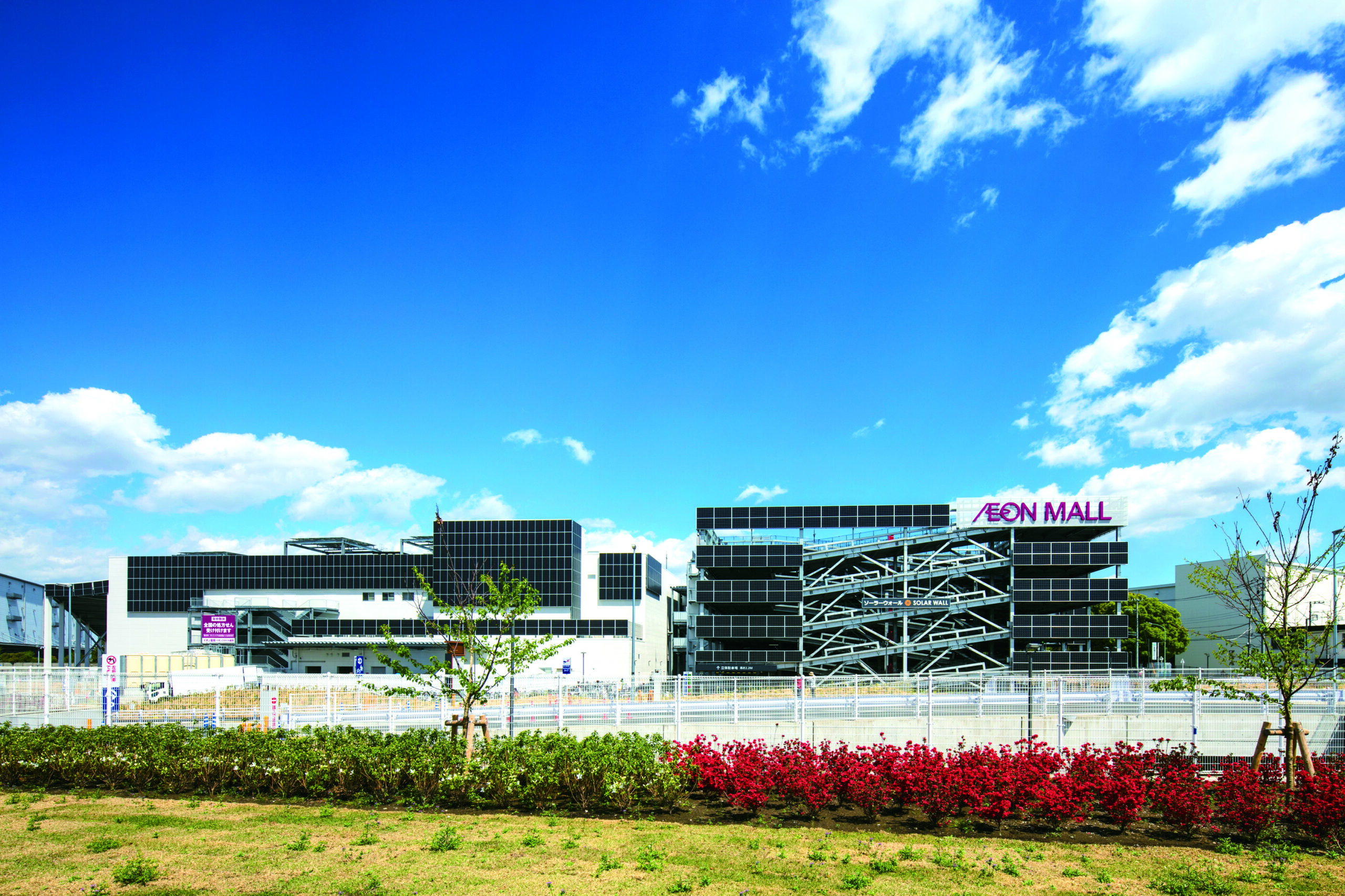How Japanese retailer Aeon is rapidly reducing emissions and switching to solar

Aeon is Japan’s biggest retail group by sales. The company’s ambition is to protect the global environment by acting with its customers, and to grow as sustainably as possible. In 2018, the company pledged to reach net zero emissions from store operations by 2050, and subsequently committed to halve emissions by 2030 and move the net zero goal up to 2040 last year.
With Aeon accounting for approximately 1% of Japan’s total electricity consumption, switching to zero-emissions energy is central to achieving its decarbonization target. Every store has laid out a renewable energy procurement plan focused on purchasing solar power and generating its own. As of 2022, it has installed solar panels across 1,000 shopping centers, supermarkets and convenience stores, and aims to install renewables at all 600 major shopping centers by 2030.
Aeon’s headquarters and 11 major shopping centers already run on 100% renewable energy as of the end of FY2021. To help improve availability of supply, Aeon was the first Japanese major retail partner for RE100, an initiative to accelerate the shift to renewable energy on a global scale by signaling demand.
Aeon has used innovations such as power purchase agreements (PPAs), under which stores provide space to erect solar panels and sign a long-term contract to purchase the generated electricity for their own use. Moreover, members of the community will soon be able to earn shopping points for supplying surplus electricity from their own solar panels to Aeon via their electric vehicles.
In 2021, Aeon increased deployment of products and financial services that can support customers who are considering a transition to a decarbonized lifestyle, such as renovations towards a decarbonized home (ZEH) or purchasing an electric vehicle (EV). While aiming to realize energy management that aligns with community needs, Aeon plans to accelerate initiatives that work hand in hand with customers to build systems that contribute to community resilience in emergencies and create a decarbonized, sustainable society for the entire community.
Reducing electricity consumption through increased efficiency is another pillar to drive down emissions. This includes developing and selling products that help cut CO2 and promoting the use of natural refrigerants. In 2005, Aeon open its first Eco store – an outlet achieving at least 20% lower emissions than conventional stores. By 2013, 12 such stores had been opened and the company began work on its next generation (Smart Aeon) Eco Stores. Starting with the opening of the first Smart Aeon store in March 2013, the number of Smart Aeon stores has increased to 15.
To achieve its climate ambitions, Aeon is reliant on a reliable supply of renewable energy, including the government policies to ensure this, and further technical innovations in every aspect of reducing emissions.
With regards to supplier engagement, Aeon has begun to take specific actions to manage and reduce the emissions in its supply chain to realize a decarbonized society. Roughly half of Aeon’s Scope 3 emissions fall under Category 1, due to activities including the procurement of raw materials, outsourcing of packaging and purchase of consumables. For this reason, Aeon has started by surveying its major contract manufacturers of its own TOPVALU brand regarding their climate change initiatives, to gain insight into the policies and efforts being made by each company on climate-related issues, and to learn about their expectations toward Aeon. Aeon hopes to calculate the greenhouse gas emissions generated in the manufacturing process of TOPVALU products with greater precision, formulate concrete reduction plans covering the entire supply chain, and build inter-company coordination on the promotion of decarbonization.

